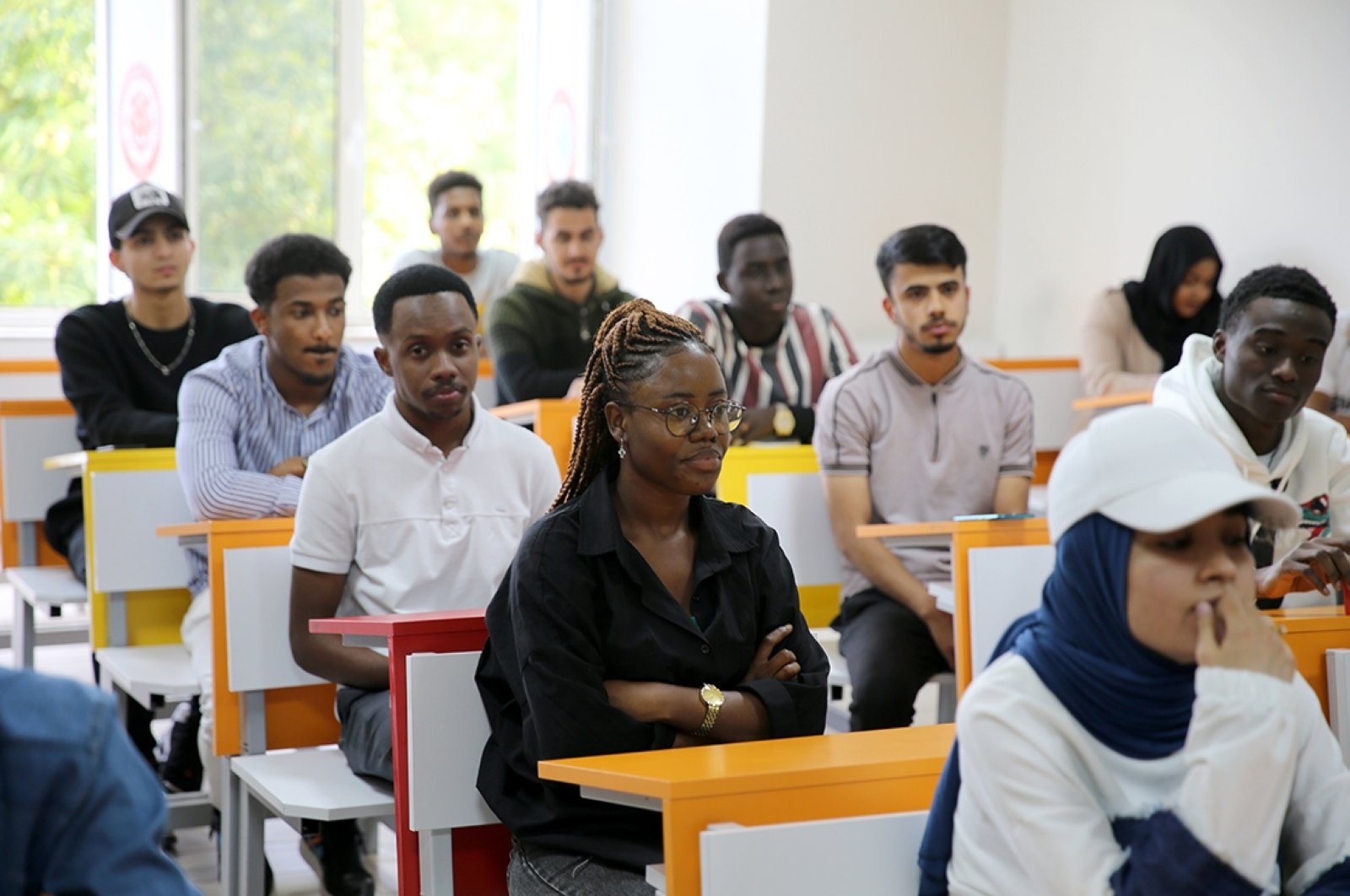
Türkiye has become a center of attraction for foreign students and efforts to increase global collaborations through travel, employment, education and internship opportunities will be accelerated in order to further increase the diversity of students and researchers.
Erol Özvar, president of the Council of Higher Education (YÖK), announced that there are more than 300,000 international students from 198 countries in Türkiye, noting that the country hosts 2.9% of the world's international students.
Most of the students said that the attention given to education in Türkiye is reflected in its quality. Among such students is Tetiana Rudkovska, who studied Public Relations and Publicity at Ankara University, and came to Türkiye from Ukraine to pursue her higher studies. Rudkovska, who is enrolled in the Türkiye Scholarships program, meets her all basic needs thanks to the initiative. Having been provided with health insurance, she also received one year of training from the Turkish Learning Research and Application Center (TÖMER) in her first year. Expressing her love for Türkiye, she said: "I made a really good choice. After my graduation I want to work in the private sector in Türkiye and gain experience."
Adelisa Salaji from Kosovo came to Türkiye in 2017 to attend university thanks to the Türkiye Scholarships program. She studied Journalism at Ankara Hacı Bayram Veli University and now pursues her carrier. "I was very pleased with the education I received in Türkiye. I completed my education at my school with different activities as education in Türkiye is better than the education in Kosovo," Salaji said. "I thought it would be easier for me to adapt because our culture, customs and religion are the same. That's why I chose to study in Türkiye as the education system offers multiple social activities along with formal education."
Türkiye to overtake Europe
Feruza Lamayeva came to Türkiye from Kazakhstan to do her master's degree in Child Development at Ankara University. Lamayeva said that Türkiye pays great attention to education and will surpass European countries in the future, adding that "Türkiye is advantageous in terms of student exchange programs compared to European countries." Lamayeva wishes to stay in Türkiye after her graduation.
Speaking at the workshop titled "Internationalization in Higher Education and the International Visibility of Universities in Türkiye" held by YÖK, Özvar drew attention to the fact that Türkiye has an international academic and student community that is growing and developing by the day. Providing information about the Türkiye Scholarships program, which was initiated to increase the number of qualified international students, Özvar said, "According to the 2022 statistics of the Presidency for Turks Abroad and Related Communities (YTB), around 165,000 applications were received from 178 countries for scholarships. In addition, students are provided with accommodation, health insurance, Turkish language education and training. The support continues through many channels, such as transportation. Considering the scholarships offered by YÖK, state scholarships and different foundations, the willingness and diversity in providing financial opportunities to our international students is striking."
Based on the data from the UNESCO Institute of Statistics, Özvar stated that 20 years ago, only 83 in 1,000 international students studying all over the world were educated in Türkiye, but now it is home to 2.9% of the world's international students. Emphasizing that Türkiye is one of the leading target countries for international students, Özvar said, "While there were approximately 18,000 international students registered in our country in 2000, we are proud to achieve such a success."
"UNESCO data is updated next year and Türkiye will be one of the top 10 countries with the highest number of international students in the world," Özvar said. "The rate of increase in the number of international students in our country is higher than the rate of increase in countries such as the United States and the United Kingdom. It increased 1.7 times in the U.S., 2.5 times in the U.K. and 10 times in Türkiye."
